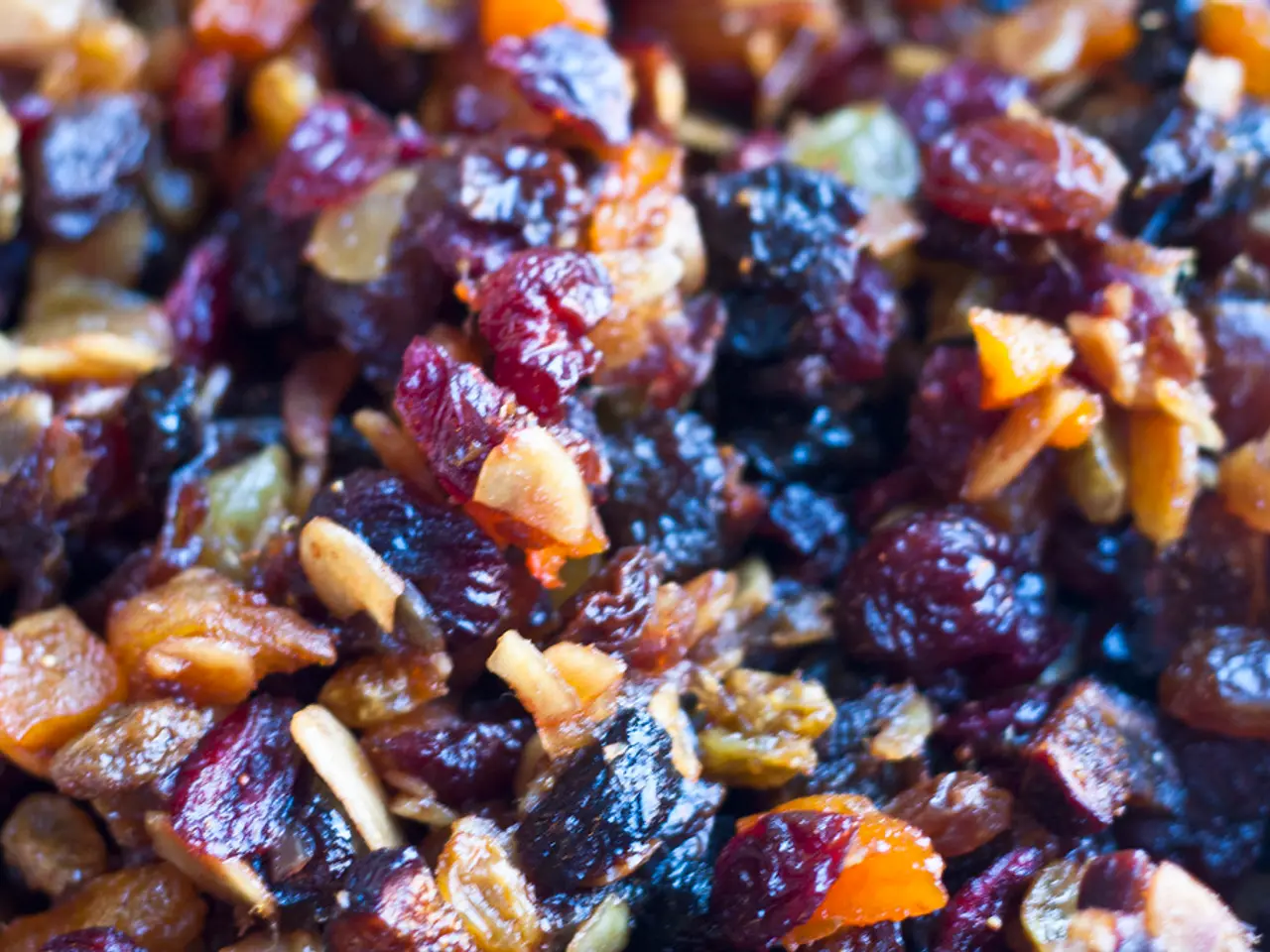Comprehensive Guide to Antioxidants: Their Functions, Benefits, and Sources
In the pursuit of a healthier lifestyle, many are turning to a rainbow diet – a vibrant approach to eating that involves consuming a diverse range of fruits and vegetables of different colours. This dietary choice is particularly beneficial due to the wealth of antioxidants found in these colourful foods.
Antioxidants are natural chemicals present in various foods that provide a defence against free radicals, unstable molecules that can damage the body’s cells. By fighting free radicals, antioxidants help reduce oxidative stress and inflammation – underlying factors in many chronic diseases.
Key benefits of consuming a variety of antioxidant-rich foods include supporting immune function, reducing inflammation and oxidative stress, maintaining healthy skin and hair, promoting healthy aging, preventing chronic diseases, and contributing to longevity.
For instance, antioxidants help boost the body’s natural defenses, lowering the risk of illness and chronic diseases such as heart disease, cancer, and neurodegenerative disorders. They also help mitigate cellular damage, promoting overall health and potentially preventing conditions related to chronic inflammation.
Vitamins C, E, and Beta-Carotene are just a few examples of antioxidants found in various foods. These vitamins, along with a host of other antioxidants, can be found in a wide array of foods such as berries, dark chocolate, green tea, artichokes, nuts, and citrus fruits.
However, it's important to note that relying solely on antioxidant supplements may not be beneficial. Whole foods provide a complex mix of antioxidants, vitamins, minerals, fibre, and other bioactive compounds that work synergistically to promote health. In contrast, supplements typically contain isolated antioxidants that may not replicate these benefits.
Moreover, some studies suggest that high-dose antioxidant supplements can have unintended effects, such as interfering with the body's own defense mechanisms or causing imbalance. Nutrients from foods, on the other hand, are better absorbed and utilized by the body than those from supplements.
In conclusion, to optimise health, the best strategy is to consume a diverse diet rich in antioxidant-containing fruits, vegetables, nuts, and legumes. This approach supports immune function, reduces inflammation, promotes healthy aging, and lowers the risk of chronic diseases more effectively and safely. By embracing a rainbow diet, we can harness the power of antioxidants to lead healthier, longer lives.
- Pursuing a healthier lifestyle, one can benefit from a rainbow diet rich in various fruits and vegetables, as they are packed with antioxidants that aid in fighting free radicals, reducing oxidative stress and inflammation, thus supporting immune function, promoting healthy aging, preventing chronic diseases, and contributing to longevity.
- Consuming a variety of antioxidant-rich foods, like berries, dark chocolate, green tea, artichokes, nuts, and citrus fruits, can help boost the body's natural defenses, lowering the risk of chronic diseases such as heart disease, cancer, and neurodegenerative disorders, by mitigating cellular damage and promoting overall health.
- While it's essential to recognize the role of antioxidants in our diets, relying solely on antioxidant supplements may not be as beneficial as consuming whole foods, as the complex mix of antioxidants, vitamins, minerals, fibre, and other bioactive compounds found in whole foods work synergistically to promote health, compared to supplements containing isolated antioxidants with potential unintended effects.




